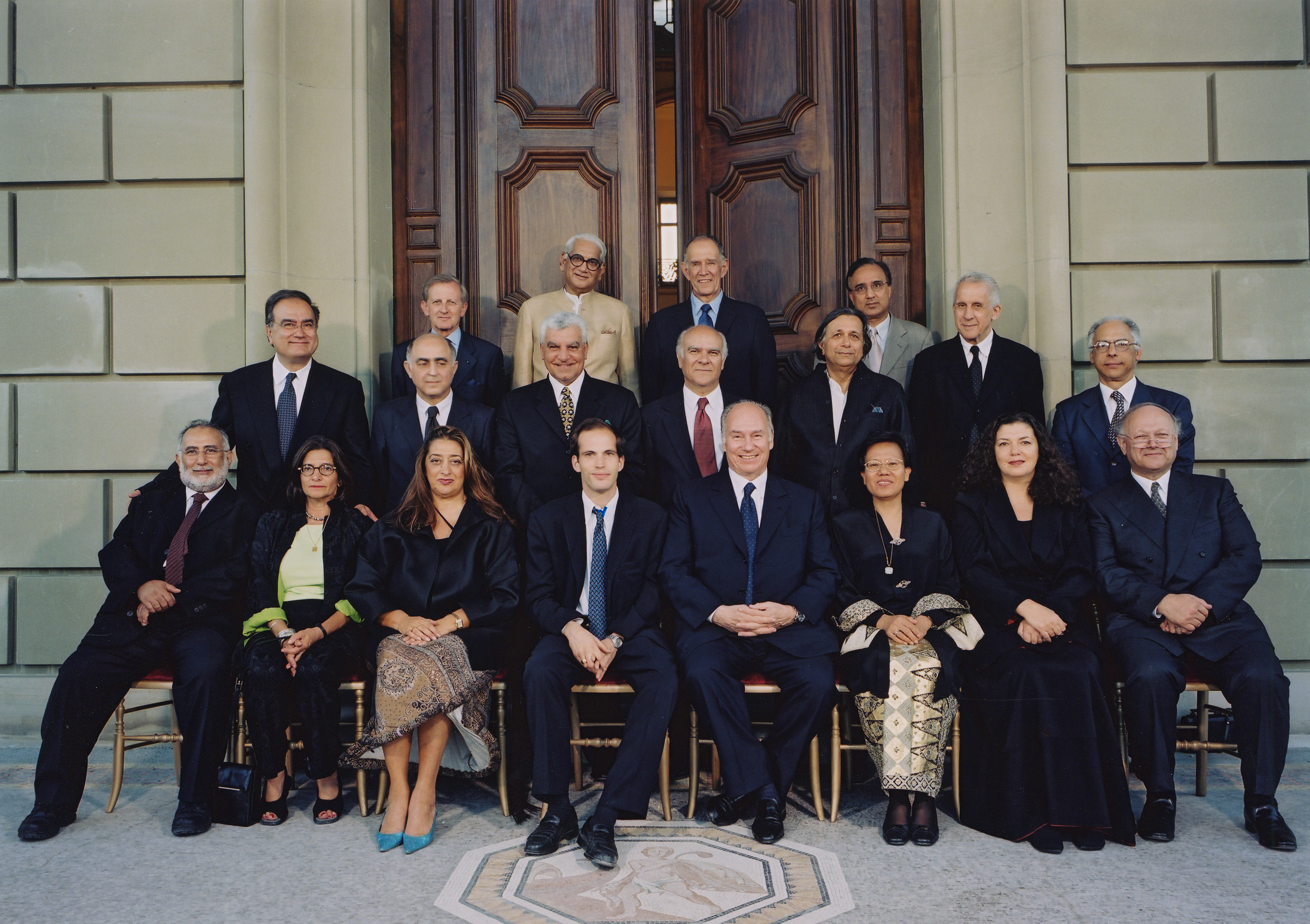2001 Cycle Master Jury statement
2001 Cycle Master Jury statement
The nine members of the Master Jury for the 2001 Aga Khan Award for Architecture met twice to select the winners from the 427 projects presented. Of these, thirty-five were reviewed on site by a team of sixteen distinguished experts, whose presentations brought the many complex aspects of each project to the Jury's attention.
 As it pursued its deliberations, the Jury found that a key concern was architecture that could be considered as design dedicated to enhancing conditions of life within diverse communities and groups in Muslim societies. Issues of environmental sustainability, social equality, cultural and historical identity and human dignity also informed the Jury's decisions.
Some of the projects are organized to encourage disadvantaged communities to advance their conditions by increasing productivity, improving their built environment and sharing access to modern culture and communication. Joint efforts by people who benefit from the modern economy and those who have remained in rural conditions have made it possible to reverse the constant flow of migration and the concomitant depletion of local human resources and deterioration of environmental and living conditions. Some projects respond to educational needs, such as preserving the life and culture of an ancient civilization, while others provide instruction in techniques of animal production to enrich diet and nutrition.
The Jury also considered the positive role of tourism in modern economies in the context of architecture that respects the environment and introduces local culture within the built work. Projects that secure the future of superb historical buildings within towns and that create new parks for urban communities also represent important inclusions in the Jury's decisions. Public, industrial and religious buildings, as well as conservation projects, were also considered, but none met the standard expected of this Award.
As it pursued its deliberations, the Jury found that a key concern was architecture that could be considered as design dedicated to enhancing conditions of life within diverse communities and groups in Muslim societies. Issues of environmental sustainability, social equality, cultural and historical identity and human dignity also informed the Jury's decisions.
Some of the projects are organized to encourage disadvantaged communities to advance their conditions by increasing productivity, improving their built environment and sharing access to modern culture and communication. Joint efforts by people who benefit from the modern economy and those who have remained in rural conditions have made it possible to reverse the constant flow of migration and the concomitant depletion of local human resources and deterioration of environmental and living conditions. Some projects respond to educational needs, such as preserving the life and culture of an ancient civilization, while others provide instruction in techniques of animal production to enrich diet and nutrition.
The Jury also considered the positive role of tourism in modern economies in the context of architecture that respects the environment and introduces local culture within the built work. Projects that secure the future of superb historical buildings within towns and that create new parks for urban communities also represent important inclusions in the Jury's decisions. Public, industrial and religious buildings, as well as conservation projects, were also considered, but none met the standard expected of this Award.
aktc-akaa-2001-master-jury.jpg

AKAA 2001 Cycle Master Jury & Steering Committee. Rear, from left: Luis Monreal, Charles Correa, Ricardo Legorreta, Azim Nanji. Second row, from left: Suha Ozkan (AKAA), Darab Diba, Zahi Hawass, Dogan Hasol, Raj Rewal, Kenneth Frampton, Abdou Filali-Ansary. Front row, from left: Ali Shuaibi, Selma al-Radi, Zaha Hadid, Prince Hussain Aga Khan, His Highness the Aga Khan, Norani Othman, Mona Hatoum, Glenn Murcutt. Absent: Frank Gehry.
Copyright:
Courtesy of AKAA
Related information

